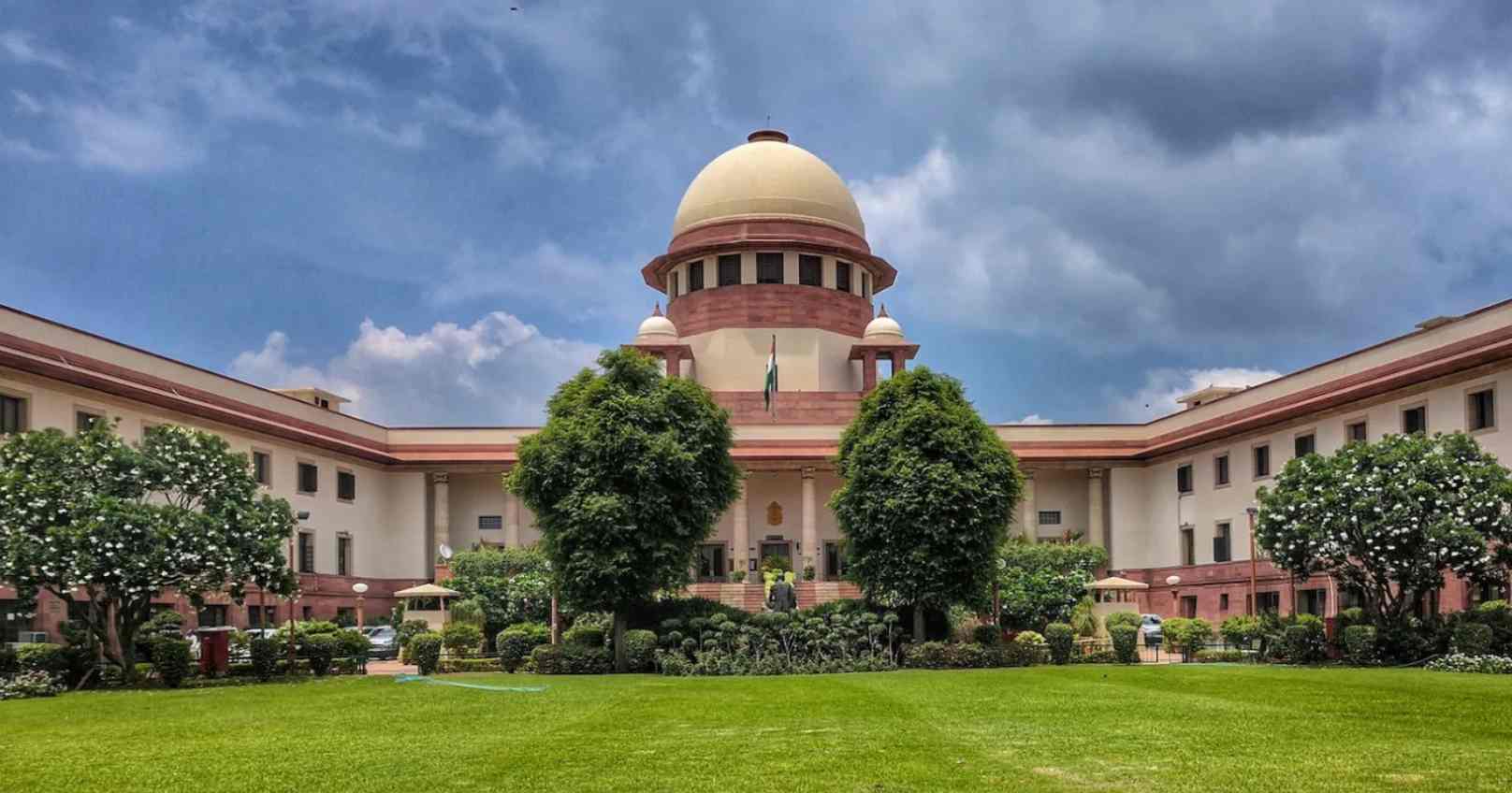The advancement of technology, commerce, and corporate activities has led to the growth of multinational corporations, facilitating global business connections. This globalization has expanded trade beyond national borders, creating complexities in insolvency procedures due to debtors and creditors being spread across multiple countries and subject to different legal frameworks.
The Insolvency and Bankruptcy Code, 2016 has experienced notable changes and developments in the five years since its enactment. Challenges encountered in practice have been addressed through amendments or court decisions. However, the issue of Cross Border Insolvency has remained at the discussion stage without significant progress. Despite efforts made since 2018, India still lacks a comprehensive set of laws to effectively deal with Cross Border Insolvency.
Cross-border insolvency pertains to situations where an insolvent debtor possesses assets and creditors in multiple countries, or when insolvency proceedings are underway against the debtor in more than one country.
The increasing number of cases against large Multi-National Companies (MNCs) seeking Corporate Insolvency Resolution Process (CIRP), coupled with these companies having assets abroad or ongoing insolvency proceedings in other countries, highlights the critical need for a Cross-Border Insolvency (CBI) framework.
EXISTING LEGAL FRAMEWORK
1. Sections 234 and 235 of the Insolvency and Bankruptcy Code (IBC) pertain to Cross Border Insolvency. Section 234 allows the Indian government to establish bilateral agreements with countries dealing with cross-border insolvency. Section 235 enables the issuance of a letter of request to countries with which India has such agreements, outlining procedures for handling assets in cross-border insolvency cases.
2. Foreign proceedings are recognized in India under Section 44A of the Code of Civil Procedure, 1908. This provision permits Indian courts to enforce foreign judgments in "reciprocating territories," which are countries or territories designated as such by the Indian government in the Official Gazette. The foreign judgment must be conclusive and based on merits determined by a competent court with jurisdiction.
3. Indian proceedings are subject to recognition based on the laws of the foreign country. If the foreign jurisdiction has adopted the Model Law on Cross-Border Insolvency, they may recognize Indian proceedings under this law, independent of India's adoption status of the Model Law.
LIMITATIONS WITH THE EXISTING FRAMEWORK
The Insolvency and Bankruptcy Code (IBC) requires bilateral agreements between countries for cross-border insolvency cases, which involve lengthy negotiations and considerable time. Each new cross-border insolvency situation necessitates the drafting of a new bilateral agreement, which is inconvenient and time-consuming.
Moreover, in the absence of a bilateral agreement, there are no provisions within the IBC to provide guidance or establish proper procedures for addressing cases where a debtor's assets are in a foreign country. The mechanism under CPC did not adequately address all aspects of insolvency processes, including reorganization orders, administrative actions, interim orders, and so forth.
Also, Sections 234 and 235 of the Insolvency and Bankruptcy Code (IBC) have not been put into effect, making them non-operational and leaving the cross-border insolvency framework unresolved. India's failure to establish reciprocal arrangements highlights the need for judicial interpretation due to the absence of operational guidelines.
UNCITRAL MODEL LAW ON CROSS BORDER INSOLVENCY
The UNCITRAL Model Law on Cross-Border Insolvency, established in 1997, is designed to assist countries in updating their insolvency laws with a modern and fair framework to effectively manage cross-border proceedings involving financially distressed or insolvent debtors. This model law is widely recognized as a leading set of guidelines for addressing cross-border insolvency situations. It provides a legislative framework that countries can adopt and adapt according to their domestic legal systems.
THE PILLARS OF UNCITRAL MODEL
1. ACCESS - The Model Law allows foreign creditors and insolvency authorities to directly approach domestic courts and take part in or initiate domestic insolvency proceedings against a debtor.
2. RECOGITION - It allows for the recognition of foreign proceedings, encompassing final awards and interim orders. It also categorizes multi-country proceedings into "main proceedings" and "non-main proceedings" to allocate jurisdiction and determine the powers of courts involved in the resolution process.
3. CORDINATION - The Model Law promotes direct collaboration between domestic and foreign courts, as well as between domestic and foreign insolvency professionals or officials. This framework allows for effective cooperation in cross-border insolvency matters.
4. PUBLIC POLICY - It enables countries to identify actions that are contrary to their public policy and to abstain from issuing any directions related to such actions. This allows jurisdictions to maintain authority over matters that conflict with their public policy.
COMMITTEES REPORT ON CROSS BORDER INSOLVENCY
The Ministry of Corporate Affairs has implemented substantial changes in its approach to cross-border insolvency, driven by the efforts of two committees — the Insolvency Law Committee (ILC) led by Mr. Injeti Srinivas, and the Cross-Border Insolvency Rules/Regulations Committee (CBIRC) headed by Dr. K.P. Krishnan.
INSOLVENCY LAW COMMITTEE
Based on the UNCITRAL Model Law, the Insolvency Law Committee proposed draft provisions for cross-border insolvency (Draft Part Z) to be incorporated into the Insolvency and Bankruptcy Code (IBC) in 2018.
This draft specifically deals with corporate debtors and does not cover personal insolvency or individual debtors. It also excludes pre-packaged insolvency arrangements and personal guarantors from its scope. Additionally, Clause 1(3) of the draft allows the Central Government to exempt certain classes of entities from these provisions.
It suggests granting the Central Government the authority to establish a mechanism allowing foreign insolvency professionals practical access to Indian courts. It also proposes using indicative factors to determine the Centre of Main Interest (COMI) transparently for foreign proceedings. Additionally, the ILC advocates for cooperation guidelines among adjudicating authorities, subject to guidelines notified by the Central Government.
The Insolvency Law Committee (ILC) recommends reciprocity as a key principle for adopting the Model Law. This means that India would recognize and enforce foreign judgments only if the foreign country reciprocates this recognition and enforcement. The ILC also suggests empowering the Central Government to create a mechanism for foreign insolvency professionals to access Indian courts. Additionally, the ILC proposes including indicative factors for determining the Centre of Main Interest (COMI) through rule-making powers to establish transparency in identifying foreign proceedings.
CROSS BORDER INSOLVENCY COMMITTEE
The purpose of this Committee is to examine and propose guidelines and regulations that will facilitate the efficient operation of cross-border insolvency process.
It established a process of determining a Corporate Debtor’s Centre of Main Interest (COMI) involves the establishment of clear tests and factors. In Draft Part Z of the insolvency provisions, the presumed Centre of Main Interest (COMI) is the debtor's registered office, unless it has been relocated within three months of the start of insolvency proceedings. The adjudicating authority is tasked with determining the location of the debtor's central administration to establish its COMI.
The report emphasized the importance of enhancing institutional capacities, noting that the CBIRC has made recommendations to strengthen both the National Company Law Tribunal (NCLT) and the Insolvency and Bankruptcy Board of India (IBBI).
UNDERSTANDING CROSS BORDER INSOLVENCY THROUGH JET AIRWAYS CASE
The case concerns the validity and priority of insolvency proceedings conducted in the Netherlands while parallel insolvency resolution was underway in India. It underscores the necessity of amending Sections 234 and 235 of the Insolvency and Bankruptcy Code to adopt provisions from the UNCITRAL Model Law on Cross-Border Insolvency, 1997.
The case concerns a request made by the Dutch Bankruptcy Administrator to the Mumbai Bench (NCLT) to acknowledge parallel insolvency proceedings taking place in the Netherlands. Initially, the NCLT declared these Dutch proceedings as invalid due to the absence of provisions in the Insolvency and Bankruptcy Code that allow for recognition of foreign court decisions. However, the National Company Law Appellate Tribunal (NCLAT) later overturned this decision upon appeal by the Bankruptcy Administrator. Subsequently, the Resolution Professional and the Dutch Bankruptcy Administrator collaborated to develop a cross-border insolvency protocol based on the principles of the UNCITRAL Model Law, designating India and the Netherlands for main interest and non-main insolvency proceedings, respectively. This case underscores the importance of establishing a framework for cross-border insolvency recognition and cooperation under the Insolvency and Bankruptcy Code.
The Jet Airways case exemplifies India's judiciary successfully addressing cross-border insolvency issues, highlighting the urgent need for a comprehensive legal framework in this area. It underscores the importance of having strong legal provisions to enable efficient resolution and protect stakeholders' interests. This case emphasizes the necessity of enhancing the cross-border provisions in the Insolvency and Bankruptcy Code, 2016 by implementing the UNCITRAL Model Law on Cross-Border Insolvency, 1997.
CONCLUSION
India, viewed as an attractive market for multinational corporations, currently lacks robust provisions within its insolvency regime for recognizing foreign insolvency proceedings. This gap presents risks for foreign investors seeking to protect their rights under insolvency laws while operating in India. There is a clear need for detailed and effective provisions regarding Cross-Border Insolvency. Despite the UNCITRAL Model Law's shortcomings, integrating its principles into India's insolvency framework can address existing gaps without worsening them.
India still must go a long way towards developing a comprehensive Cross-Border Insolvency law, with ongoing efforts such as judicial precedents, draft frameworks, and recommendations indicating positive steps forward, awaiting formal legislation to clarify the next steps.






